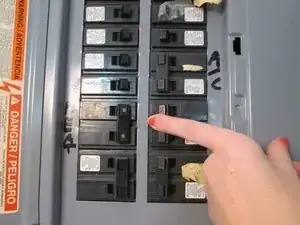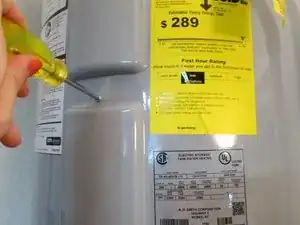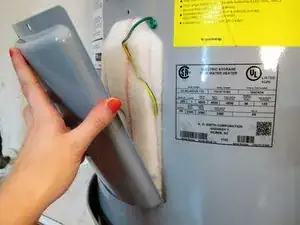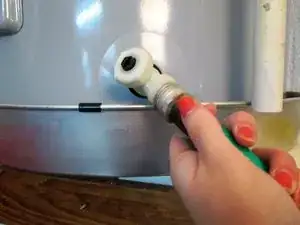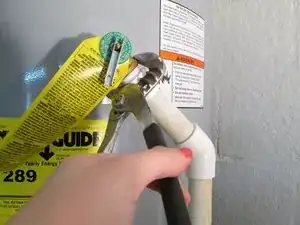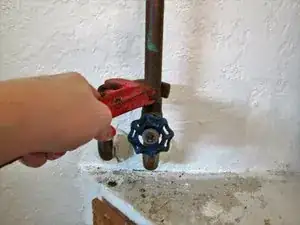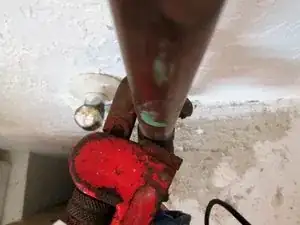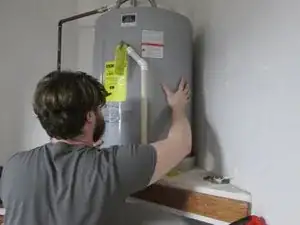Introduction
This guide will show you how to safely disconnect an electric water heater from power, drain any remaining water, and remove the appliance for replacement.
An electric water heater is a tank that heats water using high-voltage electric rods that run through the tank. Water is heated starting at the center of the tank and radiates outward. These heaters can range in size from two to 50 gallons.
An electric water heater may need be to be replaced when you notice decreased performance and/or it is nearing the end of its lifespan (about 10-15 years). Before starting this project, learn whether your electric water heater needs to be repaired or replaced. It is also important to find out how to safely get rid of your old water heater.
Tools
-
-
At the breaker box, locate the breaker for the water heater. Switch the breaker bar to the off position.
-
Using a multimeter, check the line voltage at the water heater. The multimeter should read "0 VAC."
-
-
-
Using a Phillips #0 screwdriver, remove the access panel (or panels) to access the thermostat and element.
-
-
-
Set aside the access panel cover and screws. Remove the insulation to expose the wires, thermostat, and element.
-
Disconnect the wiring from the electrical components in the panel.
-
-
-
Attach a hose to the drain valve located at the bottom of the tank, near the lower access panel. Place the other end of the hose in a safe location for the water to drain.
-
Open the drain valve on the water heater by turning it counter-clockwise.
-
Once you have a steady flow of water coming out of the hose, slowly close the cold water valve to the water heater by turning it clockwise.
-
To install a new water heater, follow the manufacturer’s installation instructions provided with the new water heater.
One comment
If you have enough assistance to transport the unit outside the house, taking apart an old water heater is simple. Components, mounting hardware, and other aspects of a water heater can all be removed independently. Nonetheless, it takes strength to pull the old water from its place and move it outside for proper disposal.
